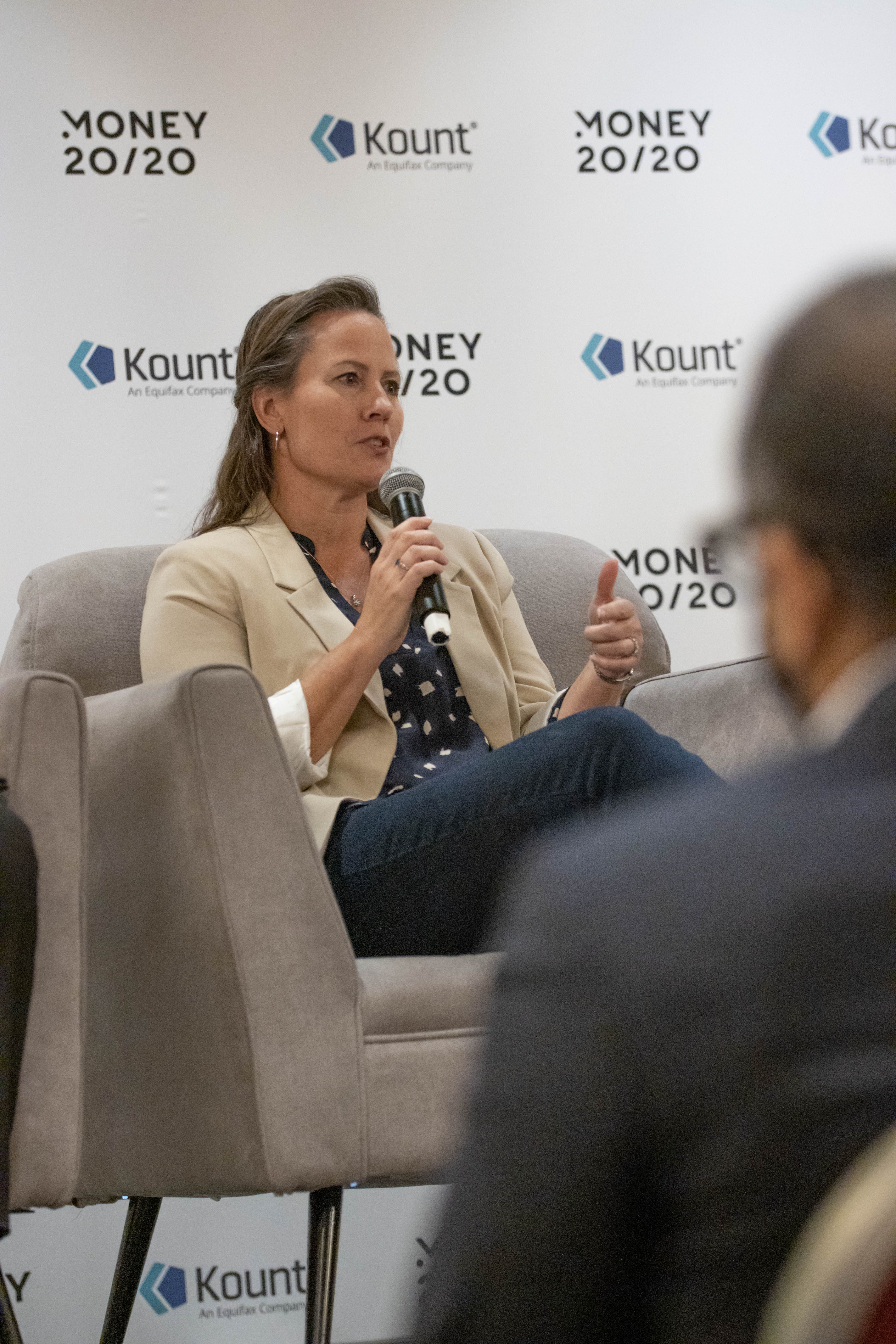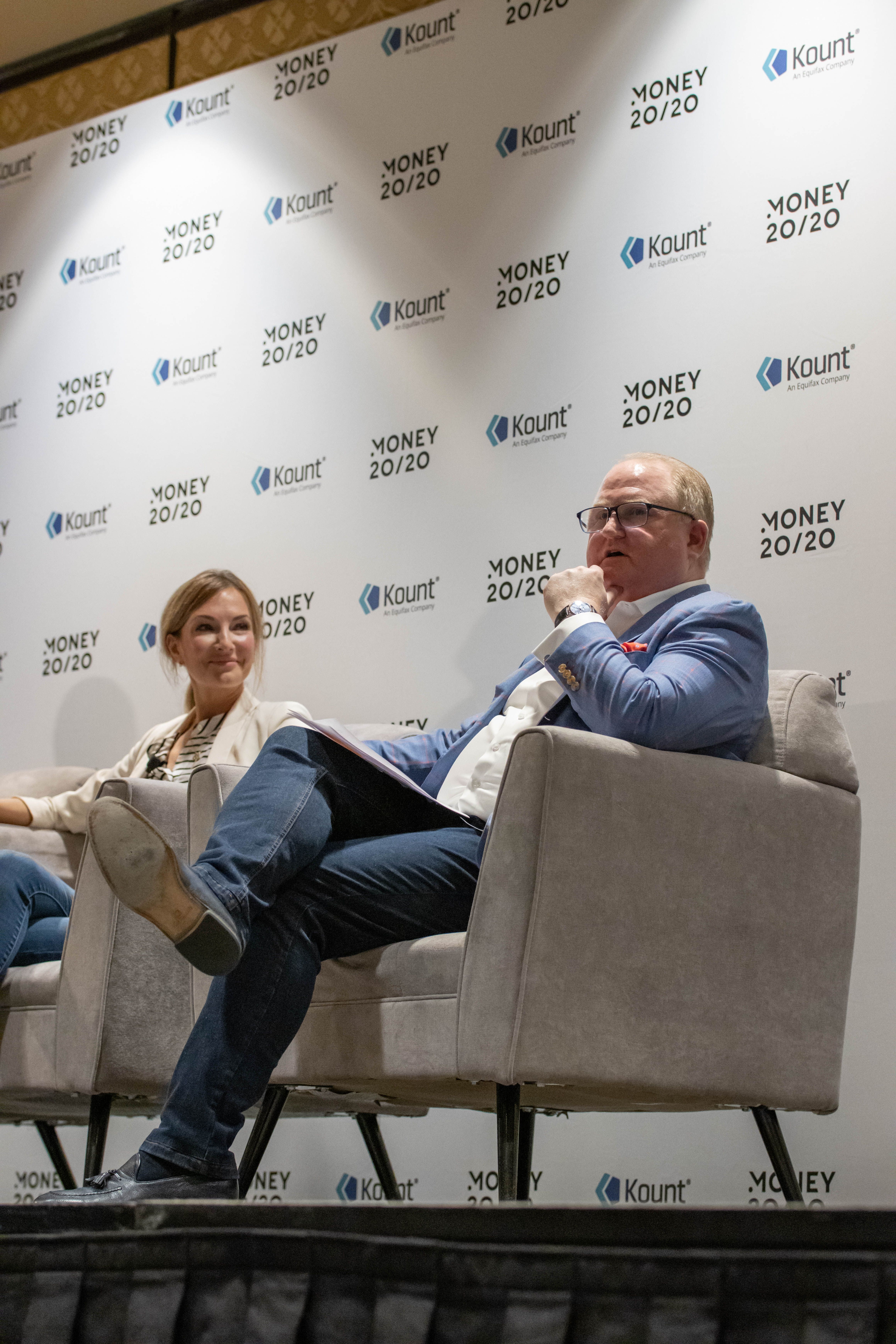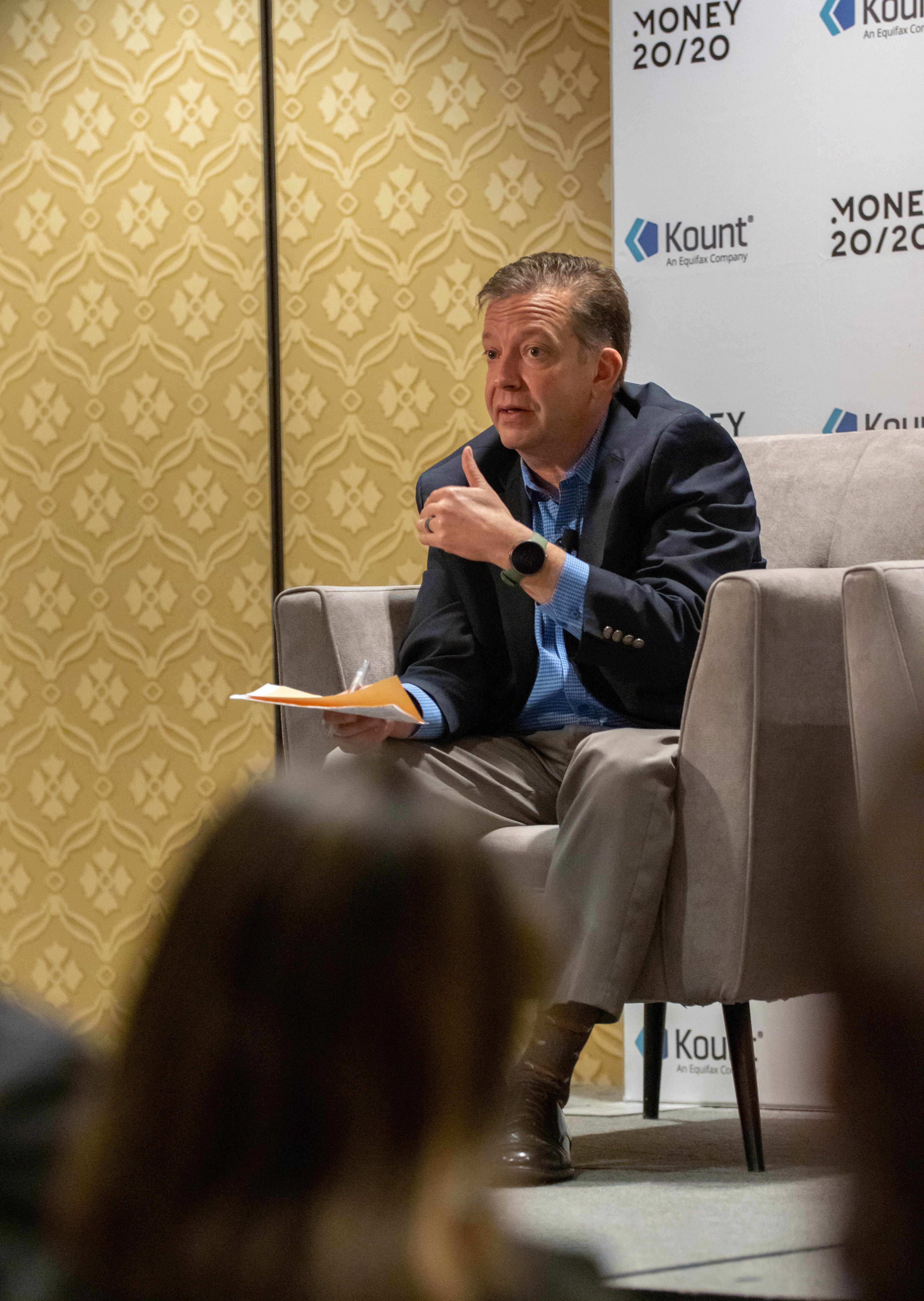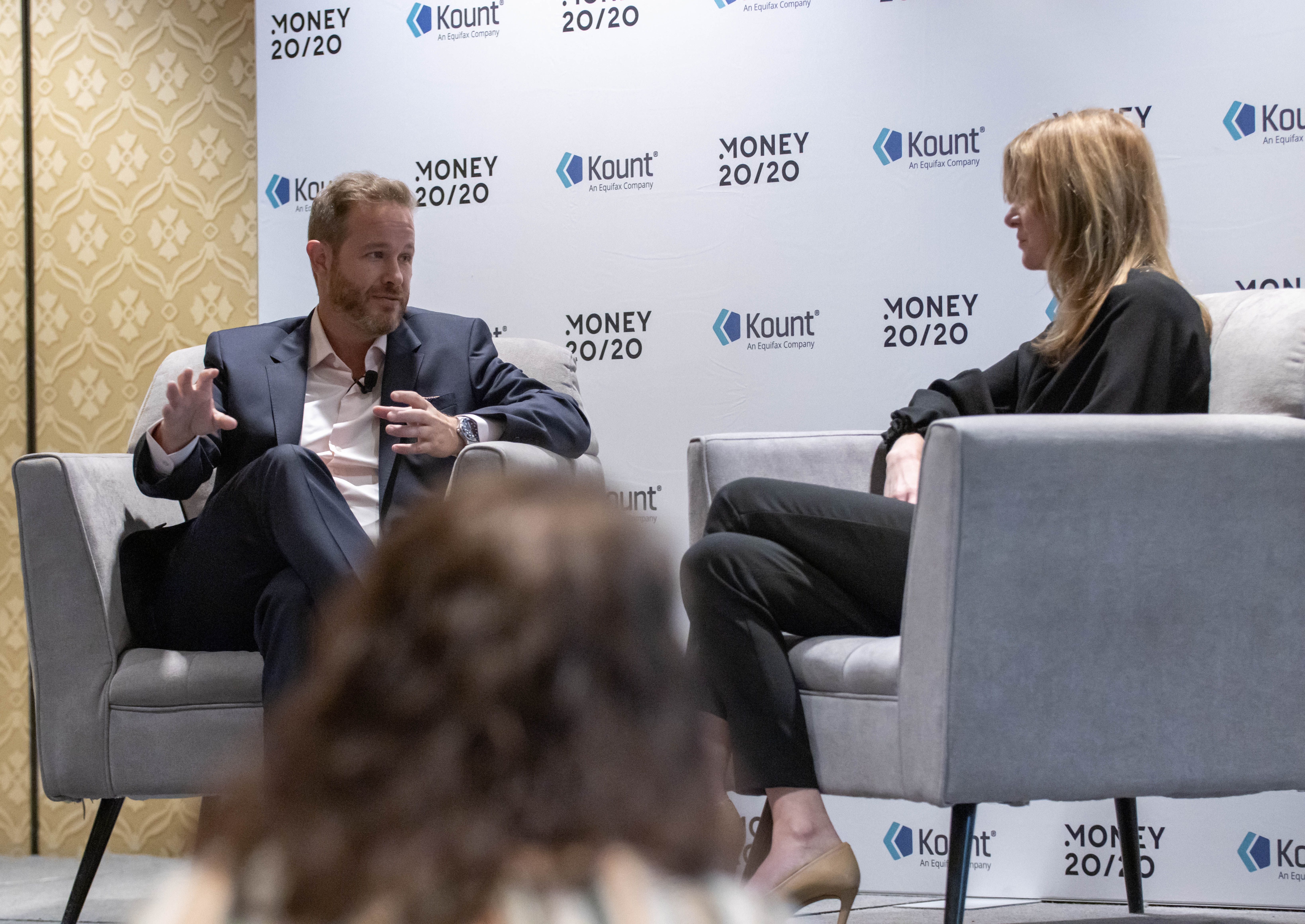Money 20/20 puts thought leaders front and center
FINANCIAL INCLUSION, digital trust, ransomware attacks, and other hot topics impacting the global fintech industry were explored recently during the Money 20/20 conference in Las Vegas, where Equifax leaders took the stage as speakers and panelists.
Founded in 2012, the annual mega-summit brings together thousands of executives, thought leaders and influencers from the payments, banking and financial services communities to discuss new innovations, trends and disruptors. This year’s theme, “Growing Your Digital Horizon,” centered on rethinking the customer journey end-to-end during transactions as digitization and risks continue to accelerate.
Keynote speaker was basketball legend and business mogul Earvin “Magic” Johnson, whose current business venture provides products and services geared primarily toward ethnically diverse and underserved urban communities.
With a lens on better serving communities, expanding access to credit, and enhancing the customer experience, here’s a snapshot of what was shared at the sessions:
Breaking Data Silos to Improve Digital Experience
 Format: Panel discussion
Format: Panel discussion
Speakers: Andra Milender, U.S. Information Solutions chief technology officer, Equifax; Benjamin Weiss, principal banking specialist, Amazon Web Services
Summary: Most businesses rely on daily data-driven decisions, and the speed and quality of those decisions impact growth and profitability. Additional data sources can provide a more complete view of customers and prospects, enabling more personalized experiences and reducing friction. But many companies struggle to effectively connect related data elements and activate desired experiences at points of interaction along the customer journey. This session examined infrastructure choices that impact precision, speed and reliability of the data used to support business decisions.
Milender: “At the heart of our transformation is the platform that we call data fabric. We've taken the time to literally ingest all the data sources across the organization so we can leverage it for better insights to support our customers’ needs. Data fabric is really the cardiovascular system of our transformation.”
Ending Buy-Now-Default Later: AI’s Role in Sustainable Profit
Format: Panel discussion
Speakers: Brad Wiskirchen, senior vice president and Kount general manager; Cooper Harris, founder and CEO, Klickly; Jas Krdzalic, Bodybuilding.com / Vitalize LLC
Summary: In the U.S., 30% of consumers who use buy now, pay later (BNPL) services expect to make a late payment in the next year. That’s bad for fintech financiers, consumers and brands – not to mention the BNPL credit revolution. When it works, BNPL can help consumers avoid high interest rates and make bigger purchases. But as more consumers struggle, how can businesses and fintech align to build a sustainable future for BNPL?
Wiskirchen: “Companies like Kount have sufficient data transactions we’ve seen globally over the decade-plus we’ve been in business to give guidance to the merchant or BNPL provider that says, ‘this person’s got a propensity to make the payments they’ve signed up for …’ ”
Say ‘Yes’ to More: Building a More Inclusive Economy
 Format: Panel discussion
Format: Panel discussion
Speakers: Shelly Nischbach, vice president of verification services, Equifax; Melissa Koide, CEO, FinRegLab; Sarah Davies, head of credit risk and analytics, Nova Credit
Summary: The economic recovery continues, but the effects are uneven and challenges persist, particularly for the unbanked. At the same time, financial institutions can miss opportunities for growth when potentially viable customers are shut out of the credit process. More inclusive financial practices can bring more consumers into the financial mainstream to fully participate in the economy. This session examined ways lenders can expand financial inclusion using data and analytics that provide a more complete view of a consumer.
Nischbach: “[Equifax is] leading the way in exploring how alternative forms of data can help expand the credit horizon for tens of millions of Americans. Increasing ‘yeses’ is dependent on a number of factors, all based on alternative data forms. Maybe it’s incorporating cashflow analyses; maybe it’s incorporating telco and utility payment history. Maybe it’s incorporating verified income and employment info into decisioning processes. All these, when combined, increase the likelihood of visibility for Americans so we can get to more 'yeses.’ ”
Expanding Access to Capital for Small Business Growth
Format: Fireside chat
Speaker: Bill Phelan, general manager of commercial solutions, Equifax; Evan Leaphart (pictured), founder, Kiddie Kredit
Summary: Small businesses are essential to the U.S. economy, employing nearly half of U.S. workers and accounting for more than 40% of U.S. Gross Domestic Product. In order to open, survive and expand, small businesses need access to affordable credit. Business applications were filed at a record pace during the pandemic, as creative entrepreneurs looked to make the best out of their circumstances. Looking forward, both pre-existing small businesses and those founded during the pandemic need continued access to capital to survive and grow.
Phelan: “There is empirical evidence that supports this credit gap on the small business side and certainly among consumers as well.”
Why Customer Journey Protection Starts With Trust
 Format: Panel discussion
Format: Panel discussion
Speakers: Rich Stuppy, chief customer experience officer, Kount; Wendy Hans, director, fraud/loss control, AMC Theaters; Mike Gramz, chief risk officer, YapStone
Summary: When the DarkSide gang launched a ransomware attack on the Colonial Pipeline in May, it demanded millions of dollars and wreaked havoc on fuel supplies. But DarkSide is more than a gang; it’s a ransomware-as-a-service platform with a help desk for victim negotiations. It has investors and target markets. It is a fintech business. In this new world of professional and profit-first fraud, businesses’ entire customer journey is a target: accounts, coupons, shopping carts, loyalty programs, mobile apps, and more. Attendees learned why the future of fraud prevention depends on a customer journey mindset, and how AI can network identity trust data to protect customers, revenues and brands.
Stuppy: “These fraudsters are organized; they are leveraging technology. They are fintech businesses. Thinking about the economic drivers of the fraud business is really important because that’s how you slow them down, [deplete] their protection, and cause them to exhaust the resources that are expensive for them.”
 The New Data Driving Revenue
The New Data Driving Revenue
Format: Fireside chat
Speakers: Todd Hoover, senior vice president, data driven marketing, Equifax; Tatum Marinkovich, senior vice president, marketing and emerging businesses, BlueStem Brands (FingerHut).
Summary: Marketing leaders who drive revenue growth and digital transformation understand that data is the foundation of good customer engagement. To build solid relationships, marketers face challenges - validating customers’ and prospects’ identities, gaining insight on their needs and propensities and more. In a sea of digital communications and experiences, it’s hard to stand out.
Marinkovich: “The [FingerHut] customer is coming to us to get credit. These are people who oftentimes don’t have previous credit. We have customers who no one else will say ‘yes’ to, and we’re the first. So we’re putting trust in them and that’s a big part of our brand architecture. But that also means we have to trust them through the journey. We’re really spending time now on, ‘let’s assume we’re coming from a place of trust,’ and treat our customers like we trust them and then they will establish that trust with us.”
